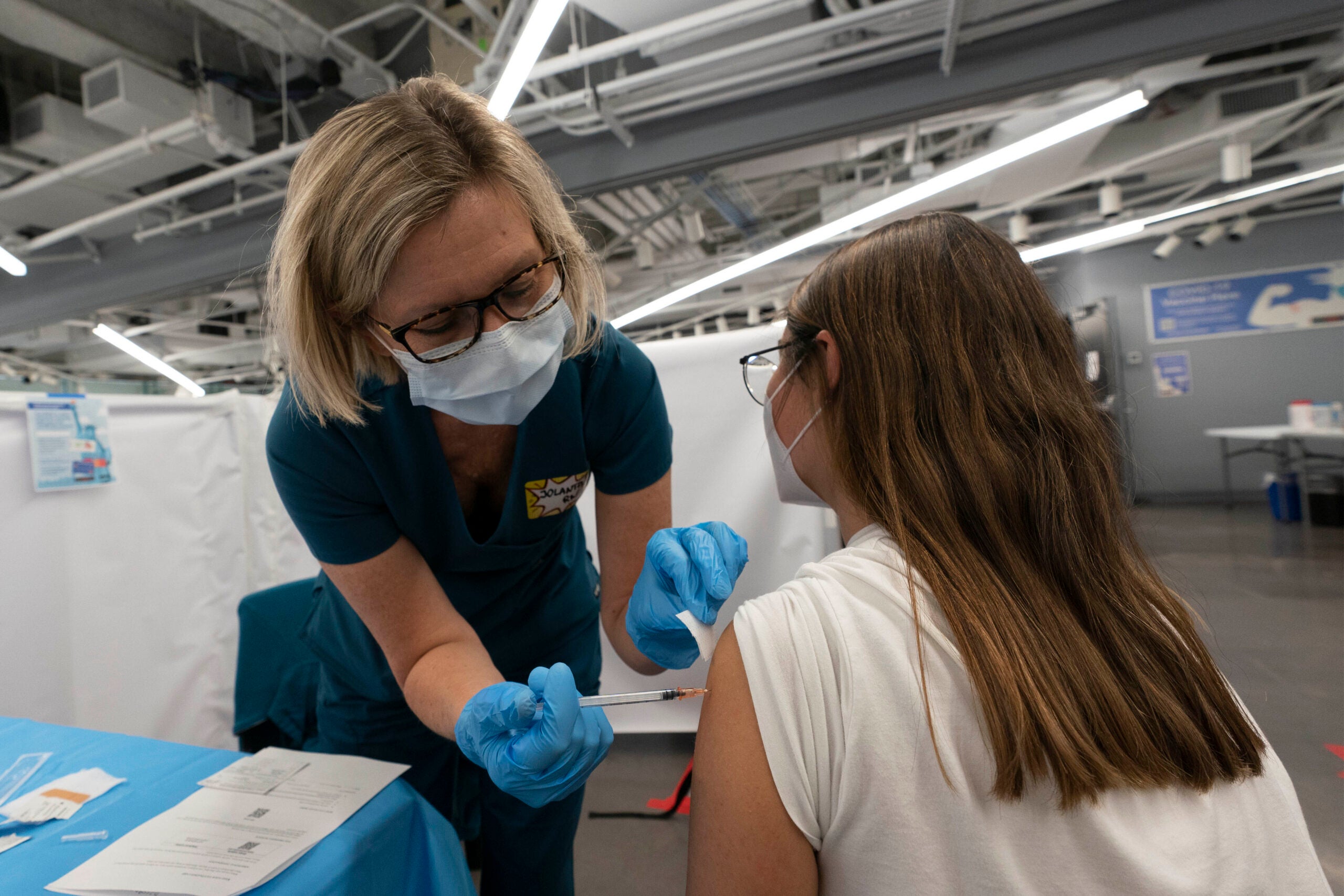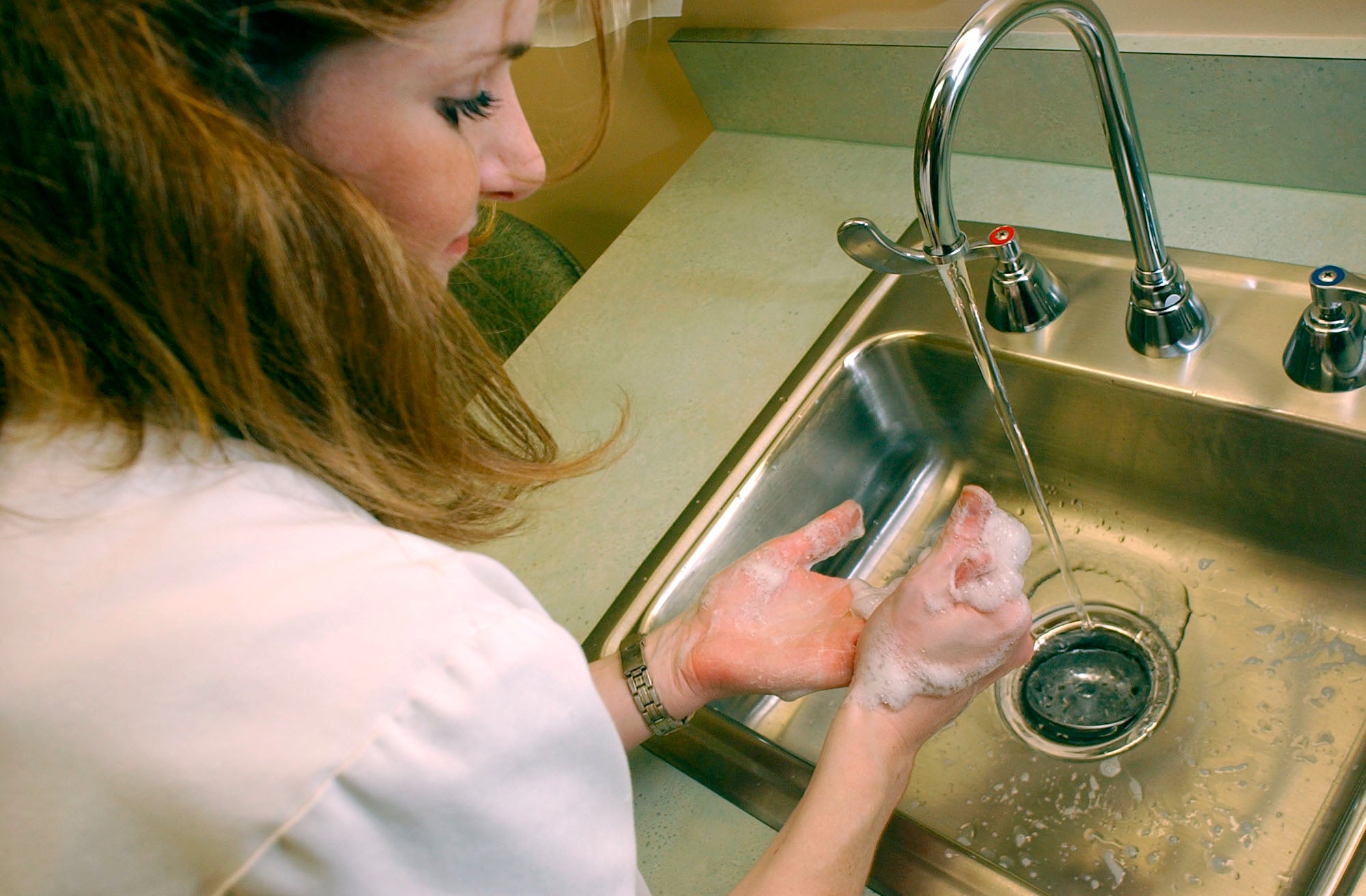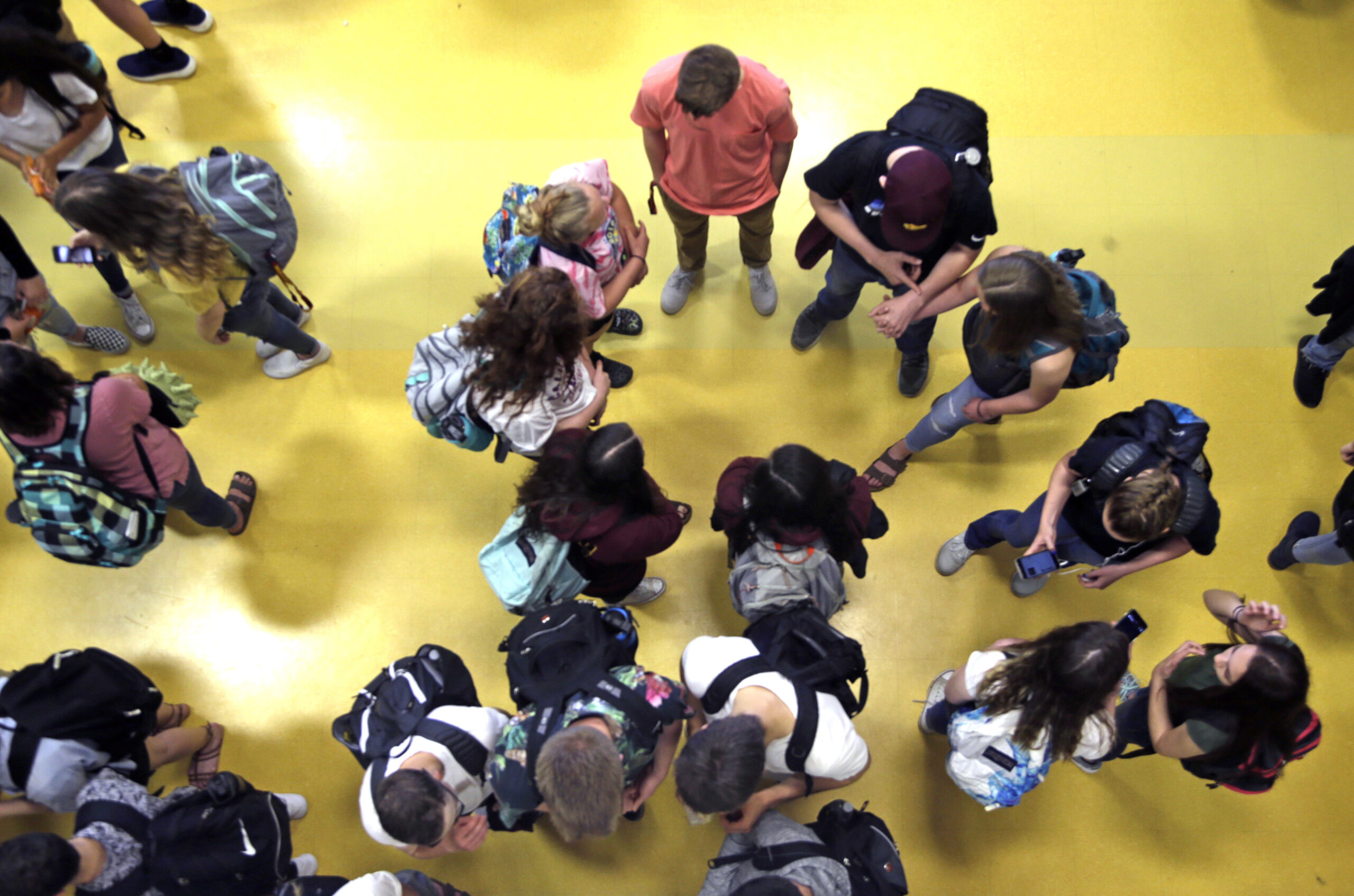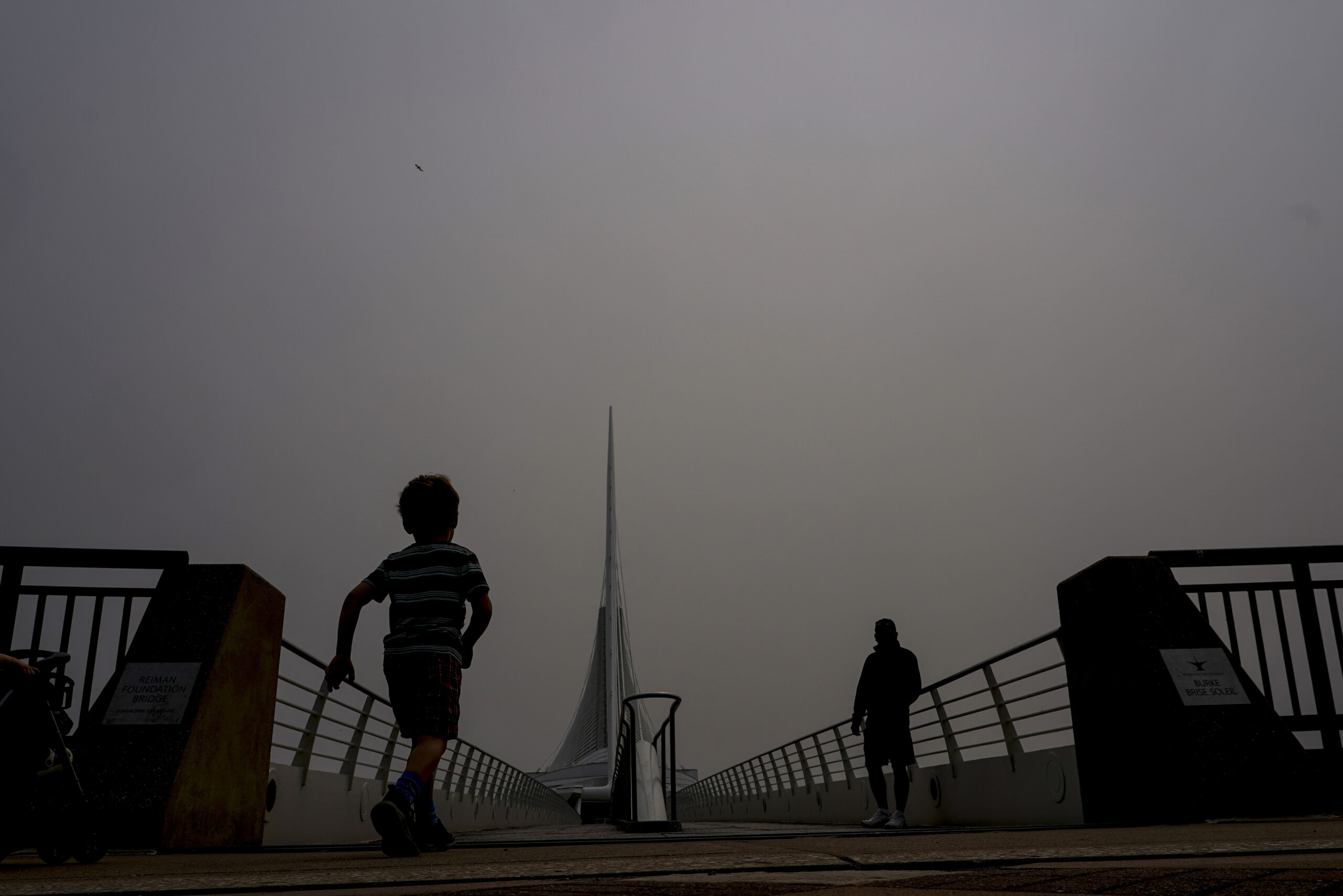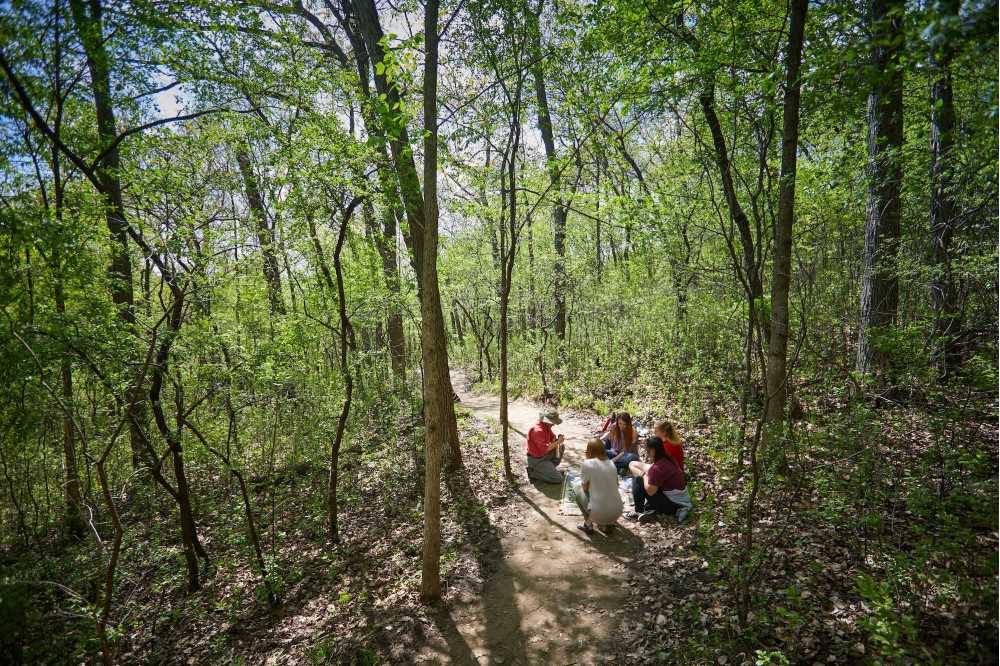Wisconsin’s seven-day average of daily COVID-19 infections hit 1,000 this week, a level the state hasn’t seen since April.
A month ago, that average was 72.
The contagious delta variant has propelled COVID-19 case numbers higher, and changed guidance for how to keep the virus from spreading.
Stay informed on the latest news
Sign up for WPR’s email newsletter.
Ajay Sethi, an epidemiologist and associate professor in the Department of Population Health Sciences at the University of Wisconsin-Madison, spoke to Wisconsin Public Radio about where Wisconsin stands in the pandemic and what it will take to lower the number of infections.
This interview has been edited for brevity and clarity.
Brady Carlson: To start, let’s talk about these cases where vaccinated people get infected and can be contagious. They’re getting a lot of attention, but how common are these breakthrough cases compared to cases among people who aren’t fully vaccinated?
Ajay Sethi: Breakthroughs in general are still rare. The vaccines are going to protect most people from becoming infected with the delta variant. But when they do occur, those individuals have a viral load, so they can be infectious. It’s something that we have to be aware of and why people should wear masks, regardless of vaccination status, when they’re in an indoor environment. (The vaccines have also proved to be effective in reducing the likelihood of hospitalization and death from COVID-19).
But still, breakthroughs are going to be on the rare side.
We should remember that by getting vaccinated, we’ve taken the most important step to reduce the burden of cases in our community and to protect our own health and that of our loved ones.
BC: We received a question from WPR’s WHYsconsin. The person shared that their husband had to be quarantined because of a possible exposure to the coronavirus. Before vaccines, before delta, that meant the husband would need to stay as isolated as possible from the rest of the household. Is that still the case for households where people are vaccinated?
AS: If you have symptoms for the coronavirus, and you’ve tested positive, 10 days from when those symptoms first appear is how long you should not be in contact with other people. The quarantine rules are the same (for vaccinated people). And of course we should always pay attention to recommendations from the CDC (Centers for Disease Control and Prevention) moving forward as more of the epidemiology and the science of the delta variant emerges.
BC: Is delta more dangerous for kids? Earlier in the pandemic the thinking was kids are generally at lower risk than adults for contracting the virus and getting severely ill. Has that changed?
AS: It’s unclear whether the delta variant poses a greater risk for children.
I think what is a problem is that because it’s so highly infectious, and when someone has the delta variant, their viral load is, on average, 1,000 times higher than the previous variants that were circulating.
Whether you’re vaccinated or not, coming in contact with someone who’s got the delta variant, you’re exposing yourself to very high levels of viral burden. That high dose, for children or adults, vaccinated or not, can be very overwhelming to the immune system.
For people who are vaccinated, immunity will kick in eventually and prevent you from experiencing those worst outcomes of COVID-19. For kids, it’s best to try to avoid exposure to anybody who may be infected, especially for the children under 12 because they’re not even eligible for vaccination yet.
BC: The surge in cases is happening ahead of the new school year. Some school districts have said everyone will mask, others have said masks would be optional. Given that vaccines for children under age 12 are still some time away, what should schools, teachers, families and kids do to keep in-person classes going?
AS: For one thing, families of young children are role models; parents particularly.
Modeling good behavior regarding mask use, handwashing, keeping your distance, avoiding crowds and, of course, getting vaccinated. Kids watch and kids emulate.
Also, it’s good to talk to your children about the importance of mask use. I’m sure these conversations have been ongoing for the last 18 months, but it’s a good time to revisit that.
I’d also do a tune-up of masks, try to replace some of them that have been used or in circulation for a while. If families are going to go with cloth masks, make sure they’re three layers, that there’s some filtration in there. No vents, because those make masks pretty useless. They make K-N95 masks for children, and I certainly see children sometimes opting to wear those, or parents opting that for their kids, and I think that’s not a bad idea. There are some good websites out there recommending reputable masks, and they’re sized for children.
Emulating good behavior, doing an upgrade on the masks, (and) waiting for maybe the mid-winter or maybe by the end of the year, when we expect the Pfizer vaccine to be available for children under 12. Between now and then, just take the right precautions.
BC: And for families with younger kids, what does life outside school look like? Do they start to put off some indoor playdates or visits with relatives while school is in session to minimize risk?
AS: Every parent is going to have their own comfort level, and kids as well. One thing is to ask yourself, “What is my comfort level?” Paying attention to local epidemiology, talking to other parents, other children, and extended family about what their comfort level is.
Playdates are important. Kids need to socialize with one another. This is also why kids ought to go to in-person school, because in-person learning is really important for their development for them to thrive. But you’ve got to do it safely. You can do playdates safely as well. But just don’t assume that other parents are going to be on the same page as you.
BC: And once vaccines for those under 12 are available, does there come a point then where all of this is essentially over? Or are masking and some of these other precautions just part of life now and going forward?
AS: With time, this delta variant, after it peaks, will decline.
Hopefully, throughout this period, more people choose vaccination, which will prevent future waves of COVID-19. And if we need to have an updated vaccine at some point, those will probably be available, and we should be ready to acknowledge the importance of those to prevent future outbreaks of new variants of COVID-19.
As far as masks, I think we’ve learned that masks not only protect us against this coronavirus, but also other respiratory pathogens.
A couple of weeks ago, I got a cold. I actually got it from my dad; I was visiting my parents. He brought it home because he goes out almost daily (and) doesn’t always wear a mask when he needs to. I picked up this infection, and I was pretty miserable. I didn’t like it. It reminded me that even in the summer, I ought to think about when is a good time to wear a mask, just so I can avoid picking up an infection and keeping my lungs healthy, because I’m usually happier that way.
I think we’ve all learned that, and I think moving forward, particularly when the pandemic is under more control, we’ll all appreciate the seasonality of mask use. When is it prudent to put one on? When they’re appropriate, we’ll pay attention to local epidemiology about different infections, and I think that’s wise to do.

